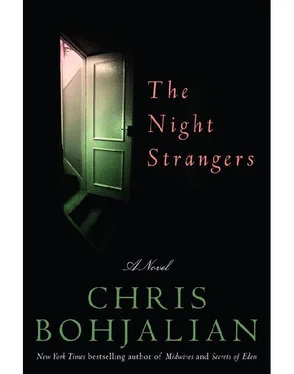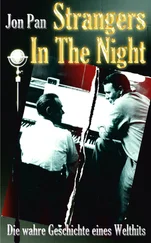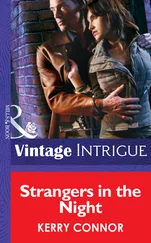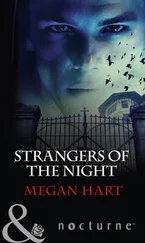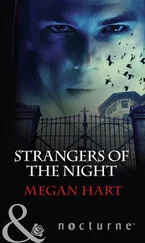Chris Bohjalian - The Night Strangers
Здесь есть возможность читать онлайн «Chris Bohjalian - The Night Strangers» весь текст электронной книги совершенно бесплатно (целиком полную версию без сокращений). В некоторых случаях можно слушать аудио, скачать через торрент в формате fb2 и присутствует краткое содержание. Жанр: Триллер, на английском языке. Описание произведения, (предисловие) а так же отзывы посетителей доступны на портале библиотеки ЛибКат.
- Название:The Night Strangers
- Автор:
- Жанр:
- Год:неизвестен
- ISBN:нет данных
- Рейтинг книги:5 / 5. Голосов: 1
-
Избранное:Добавить в избранное
- Отзывы:
-
Ваша оценка:
- 100
- 1
- 2
- 3
- 4
- 5
The Night Strangers: краткое содержание, описание и аннотация
Предлагаем к чтению аннотацию, описание, краткое содержание или предисловие (зависит от того, что написал сам автор книги «The Night Strangers»). Если вы не нашли необходимую информацию о книге — напишите в комментариях, мы постараемся отыскать её.
The Night Strangers — читать онлайн бесплатно полную книгу (весь текст) целиком
Ниже представлен текст книги, разбитый по страницам. Система сохранения места последней прочитанной страницы, позволяет с удобством читать онлайн бесплатно книгу «The Night Strangers», без необходимости каждый раз заново искать на чём Вы остановились. Поставьте закладку, и сможете в любой момент перейти на страницу, на которой закончили чтение.
Интервал:
Закладка:
They decided they would take a break from the boxes they had been unpacking and the wallpaper they had been scraping to go skiing and snowboarding. It was the Lintons’ first Sunday in New Hampshire, and they woke, took their equipment from the massive pile of athletic gear they had deposited unceremoniously in the mudroom off the front entryway, and Chip hooked everything into the rack on the top of the station wagon or wedged it into the back. They would drive to Cannon Mountain, where they would buy day passes for the family. Emily would snowboard with the girls while Chip skied alone. After five days of steady work, the stacks of boxes had begun to shrink and the corridors composed of cardboard had begun to diminish in both height and length. The cartons marked HALLIE and GARNET and KITCHEN were largely (but not entirely) gone, flattened and taken yesterday to the transfer station. On the other hand, they hadn’t even started on the boxes in the living room because they had made the decision that the wallpaper there-a repeating image of horses and hounds and a fox that looked disturbingly like an eel with fur-had to go and they might as well deal with it sooner rather than later. Nor had they started on the boxes in the dining room or the guest bedrooms. In the other rooms (and this house, they realized, really did have a lot of rooms) they had made varying degrees of progress, though all still had at least two or three unopened moving cartons.
Emily found herself fascinated by the traces that remained of the family who had lived in the house before them: Sometimes she was bemused, other times slightly disturbed. Parnell Dunmore had been buried nearly seven years now in the cemetery a mile away with the elegant wrought-iron fencing and the gates with the ornate trelliswork, and his wife, Tansy, had been in that graveyard almost four. Tansy had lived in the house not quite fifty years and, with Parnell, raised two sons there. Twins, which Emily viewed as either an irony or a coincidence. One of the sons had taken his own life as a twelve-year-old decades earlier, but his brother, now an ornery fifty-four-year-old named Hewitt, lived about forty minutes away in St. Johnsbury. Though almost all of the Dunmores’ furniture had long been cleared by the time the Lintons moved in, a certain amount of detritus remained that either the son had forgotten or hadn’t bothered to pack-or, in some way, was inextricably linked to the house. Sometimes Emily would find the sort of thing you might discover in the back of an antiques store, such as the broken but handsome sewing machine from the late nineteenth century. It was made of cast iron and mahogany and had a treadle in the bottom of the cabinet that demanded both feet to operate. It looked like a desk and might have weighed as much as a small car. Emily found it in the attic and couldn’t imagine how anyone could possibly have carted it up the rickety steps that descended from a trapdoor in the second-floor ceiling and was the only link between the attic and the rest of the house. Not far from the sewing machine were rows of old wine bottles-over two dozen-with either plastic flowers or melted candles emerging from the tops. Some were forty years old. Among the items they found in the basement (all far from the corner with that peculiar door) were old wooden sap buckets, great coils of deteriorating rubber garden hose, a plastic model of an Apollo rocket, a brass door knocker, and three separate birdhouses. The girls found a couple of old teacups hanging from hooks in the very back of a cabinet in a dining room wall and porcelain figurines of elves and trolls and skiers in a box in a corner of the walk-in closet on the third floor.
Meanwhile, the carriage barn had everything from long lengths of rusted barbed wire to a Betty Crocker wall calendar made of canvas from 1973. There were empty paint cans and barrels of bobbins because once, decades and decades ago, there had been a bobbin mill along the river at the base of the hill on which the house sat. Apparently, every house in Bethel had barrels of bobbins. There were a boy’s bow and a quiver of arrows, the tips blunt, and tall piles of what might have been the house’s original shutters (there must have been fifty of them). There was a collar for a draft horse. Emily phoned Hewitt Dunmore in St. Johnsbury and asked about this miscellaneous silt from the house and the barn, even offering to drive the articles (including, somehow, that sewing machine) to his home, but Hewitt raged that he couldn’t have been expected to empty the house completely, not with a back as bad as his and with knees that were cranky at best. He suggested they keep whatever they liked and bring to the dump whatever they didn’t.
Even the small greenhouse hadn’t been fully emptied. It still had its four wooden tables for plants, and the girls seemed to view it as their playhouse, even though it really wasn’t all that warm right now; in fact, Emily was quite sure that the temperature was no more than four or five degrees warmer than outside. But the twins already had swept off the tables and deposited their American Girl dolls there, as well as most of the dolls’ furniture. They had carted their bins with dress-up clothes there, too, as well as their plastic trolls (which they insisted they had outgrown years earlier but nonetheless had brought with them to New Hampshire). The cat, meanwhile, seemed to spend her time in the barn. She hadn’t caught anything, as far as they knew, but she seemed to be stalking mice there.
The items that left Emily troubled were the crowbar, the knife, and the ax. She found their presence alarming and was relieved that it was she who had come across them, rather than Hallie or Garnet. She found the crowbar in the back of the closet of the second-floor bedroom that once had belonged to one of the Dunmore boys, a room that was going to be a guest bedroom now. It was upright in a corner and might merely have been there for years, forgotten. The knife was a carving knife with a pearl handle, and while the handle was discolored with age, the blade, though rusted, was sharp as new. Emily found it underneath a wrought-iron heating grate in the master bedroom-what was now her and Chip’s bedroom-and she only noticed it because she was considering replacing the dingy black grille with something more attractive from a home restoration catalog. And so she happened to spin the grate and there it was. Some of the metal latticework had been sawed off, allowing the knife to be slipped into place-and quickly removed. And, finally, there was that ax-a hatchet, really. She found it behind some ancient (and scarily toxic) cleaning supplies that Hewitt Dunmore had left underneath the kitchen sink. It was the length of her arm from her elbow to the tip of her finger.
She showed each of the items-the crowbar, the knife, and the ax-to Chip as soon as she found them. He suggested that perhaps Tansy Dunmore had been especially unnerved by the murders, some years earlier, of a pair of Dartmouth College professors by some local teen boys. Dartmouth was a ninety-minute drive to the south, and the double homicide had left everyone in Vermont and New Hampshire on edge. Or, perhaps, Tansy had always been easily frightened.
“But we know that Parnell Dunmore had a hunting rifle,” she replied, and he, in turn, surmised that she probably didn’t know how to shoot.
“Trust me, most women aren’t Lizzie Borden,” Emily argued. “If a woman has a choice between killing someone at close range with a carving knife or an ax or shooting that person with a rifle, she is always going to pick the gun.” But she saw that Chip was unconvinced. He remained more baffled than alarmed.
And, soon enough, her alarm passed, too, or perhaps she was so fixated on the day-to-day logistics of anchoring her family. Registering the twins for dance classes and school. Finding Hallie a new teacher for the flute and one for Garnet for the violin. Doing what she could to get them acclimated to their new classroom and teacher and (she hoped) friends. And then there was the ongoing vigilance when it came to Garnet’s seizures. In most ways, they were minor: She would go into a trance and leave them for perhaps half an hour. Sometimes it would be less, sometimes more. It was a variant of epilepsy: Electrostatic discharges in her brain-solar flares on the EEGs-would interrupt her thinking, and her mind would become, in essence, a frozen computer. The issue, according to the neurologists (and they had seen three over the years), was whether the seizures might be symptomatic of a condition that would worsen as she grew, the seizures both lengthening and occurring with greater frequency. But, they reassured Chip and Emily, they were just as likely to disappear forever as Garnet approached adolescence. For a while she had been treated with Valium, but in doses that Emily knew would have left most adults wobbly-kneed and walking into walls. Somehow, Garnet handled the dosage just fine, despite the reality that she weighed barely half as much as her mother. The child had been off Valium for a year now and she hadn’t had a seizure since October, but Emily never stopped watching.
Читать дальшеИнтервал:
Закладка:
Похожие книги на «The Night Strangers»
Представляем Вашему вниманию похожие книги на «The Night Strangers» списком для выбора. Мы отобрали схожую по названию и смыслу литературу в надежде предоставить читателям больше вариантов отыскать новые, интересные, ещё непрочитанные произведения.
Обсуждение, отзывы о книге «The Night Strangers» и просто собственные мнения читателей. Оставьте ваши комментарии, напишите, что Вы думаете о произведении, его смысле или главных героях. Укажите что конкретно понравилось, а что нет, и почему Вы так считаете.
